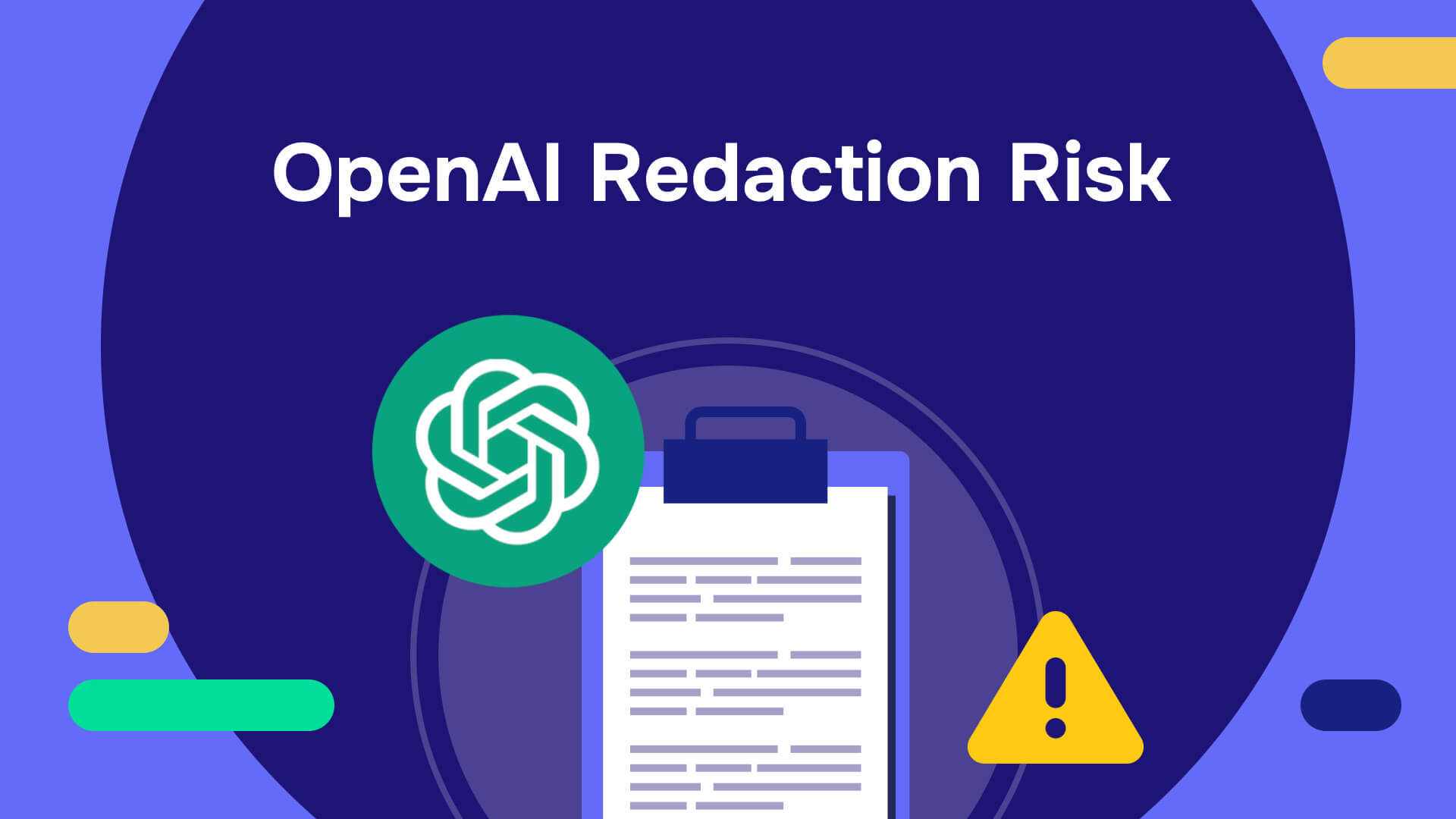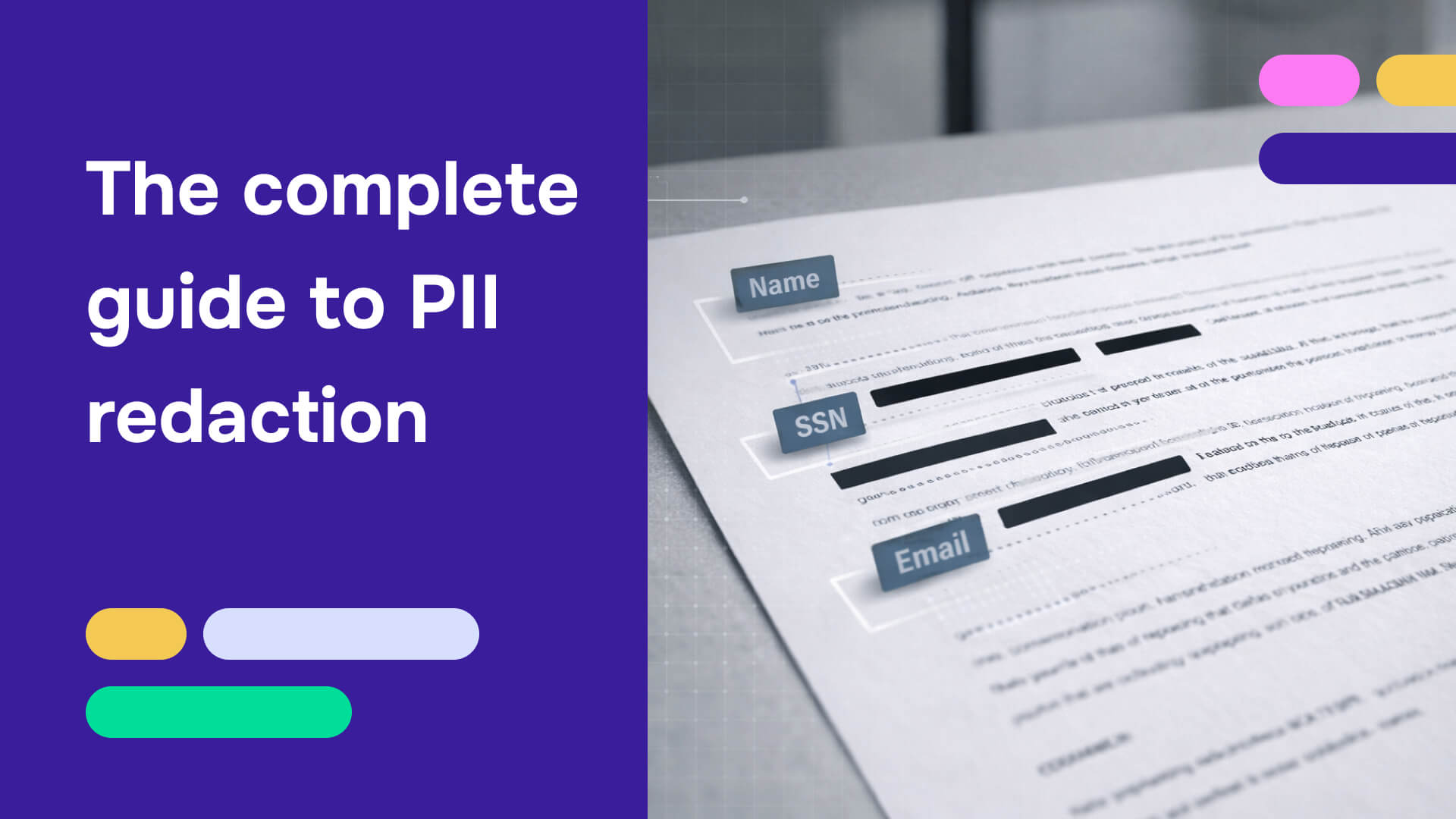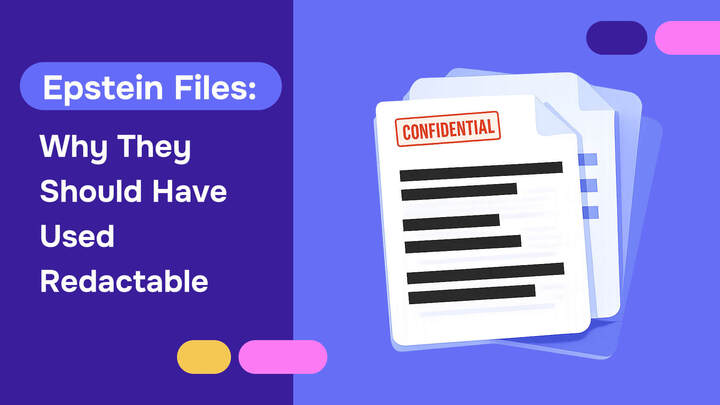In today's digital era, protecting sensitive information has become crucial. With the rise in data breaches and cyber threats, understanding and implementing effective electronic data redaction methods is vital for individuals and organizations.
What is redaction?
Redaction traditionally meant editing a document for publication, which involved manually obscuring or removing sensitive information. However, the term has evolved, now referring mainly to electronic data redaction, where digital tools and software are used to securely and efficiently conceal confidential data.
The transformation of redaction through technology
The methods of document redaction have significantly evolved over time. Initially, redaction involved laborious manual processes, but with advancements in technology, the approach has shifted towards automation, making the process faster and more reliable.
From manual to automated redaction
- First-generation redaction tools: Early electronic redaction tools required users to manually search for and select sensitive information. This process was not only time-consuming but also prone to human error, as it was easy to overlook or incorrectly redact data.
- Modern AI-powered redaction: Today, cutting-edge redaction software leverages Artificial Intelligence (AI) to automatically detect and redact sensitive information such as Social Security Numbers, names, phone numbers, and credit card numbers—collectively known as Personally Identifiable Information (PII). AI-powered tools analyze patterns and contexts, significantly enhancing the accuracy and speed of redaction processes.
Benefits of advanced redaction technology
- Speed and efficiency: Advanced redaction tools can process multi-page documents within minutes, reducing the time and effort required compared to manual methods.
- Accuracy: The integration of AI and Natural Language Processing (NLP) technologies ensures that sensitive information is consistently identified and redacted, minimizing the risk of human error.
- Comprehensive data protection: Modern software not only redacts visible information but also removes hidden metadata, ensuring that no traces of confidential information are left behind.
How to redact documents effectively
In the digital age, redacting sensitive data is primarily done using specialized online software or plugins/extensions. While tools like Adobe Acrobat's Redact function are popular, newer solutions offer enhanced capabilities with the latest technology.
Introducing Redactable: next-generation redaction software
Founded in 2008 by Amanda Levay, a former loan consultant, Redactable is at the forefront of redaction technology. Levay's extensive experience with sensitive data and her frustration with existing tools inspired her to create a solution that prioritizes speed, accuracy, and ease of use. As Levay explains, “As a former loan consultant, I would get tons of confidential documents sent to me for due diligence packages. I constantly managed documents such as client tax returns, social security numbers, account information, appraisals, and inspection reports. I soon found out that drawing boxes over sensitive data didn’t work. Convinced there was a better way to redact documents, I started Redactable."

Based in New York, Redactable combines years of research in NLP and Optical Character Recognition (OCR) to deliver a powerful and user-friendly redaction solution.
Key features of Redactable:
- One-click auto-redaction: Allows users to efficiently remove all sensitive data from extensive documents with a single action.
- Collaborative workflow: Enables teams to work together seamlessly with features like annotations, timestamps, redaction history, and certificates, ensuring transparency and accountability throughout the redaction process.
- Robust privacy compliance: Redactable adheres to strict GDPR and CCPA guidelines, ensuring that user data is protected and compliant with international standards.
- Integration capabilities: The software easily integrates with platforms like Google Drive, Dropbox, OneDrive, and Box, making it convenient for users to access and manage their documents.
- Affordable and accessible: Redactable offers unlimited data redaction for a competitive monthly fee and provides a free 7-day trial, allowing potential users to experience its full capabilities without any commitment.
How to use Redactable
Using Redactable is straightforward and designed to be intuitive, even for users new to electronic data redaction. Here's a step-by-step guide:
1. Upload your document: Start by uploading the document you wish to redact into the Redactable platform. You can upload files directly from your device or import them from integrated cloud services like Google Drive or Dropbox.

2. Automatic redaction: Once your document is uploaded, use the Auto-Redact feature to instantly identify and redact all sensitive information. The AI algorithms will scan the document and highlight potential PII that needs to be concealed.
3. Manual adjustments: After the automatic redaction, you have the option to manually review and adjust the redactions. This allows you to ensure that all necessary information is redacted and that no non-sensitive data is mistakenly obscured.
4. Collaborate and review: If you're working within a team, you can share the document with colleagues for review. Redactable's collaborative features, such as annotations and redaction history, help maintain a transparent and organized workflow.
5. Finalize and download: Once the redaction process is complete, finalize your document. Redactable will remove any hidden metadata to ensure complete privacy. You can then download the redacted document in your preferred format.
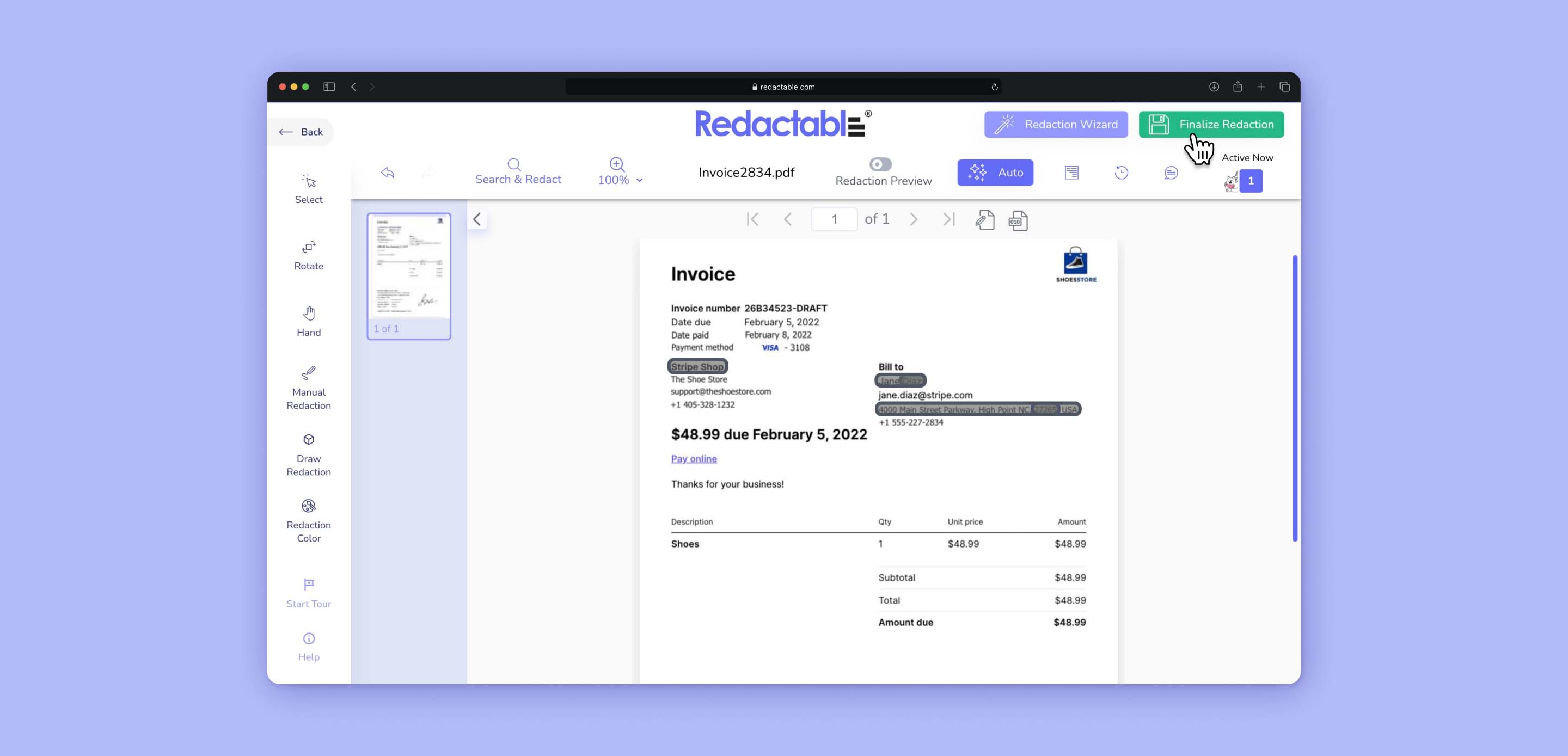
Why choose Redactable?
Redactable stands out for its commitment to addressing the real-world challenges of data redaction. Amanda Levay’s personal experience in the loan industry, where secure document handling is paramount, fueled the development of a tool that is both powerful and user-friendly. Today, Redactable is trusted by prominent firms such as CFV Ventures, Stoney Lonesome Group, and Tampa Bay Wave for handling their sensitive data.
The critical importance of data security
Data security is not only about having the right software; it also heavily relies on the practices and protocols established by users and organizations. Proper data handling measures are essential to prevent breaches, which can have severe consequences for both individuals and businesses.
Consequences of poor data security
- Legal repercussions: Failure to protect sensitive information can result in lawsuits, fines, and even the loss of business licenses.
- Reputational damage: Data breaches can erode trust among clients and partners, negatively affecting a company's credibility and profitability.
- Operational disruptions: Compromised data can lead to significant disruptions in business operations, resulting in financial losses and damage to business continuity.
Real-world example: In 2013, Citigroup faced a major issue when they failed to protect sensitive customer data due to inadequate redaction practices. This incident exposed the personal information of 146,000 customers and underscored the critical need for effective data security measures.
Best practices for data redaction
To ensure maximum protection, it's essential to implement redaction at strategic points during data handling. These best practices help minimize the risk of data leaks and demonstrate a commitment to data security:
- Upon receiving data: Redact sensitive information immediately upon receiving it to prevent potential leaks from the outset.
- After task completion: Redacting data after it has been used ensures that no residual sensitive information remains accessible.
- Before data distribution: Before sharing data with others, redact any unnecessary sensitive information to protect privacy.
- Prior to data archiving: Redacting data before archiving it ensures that stored data is secure against future breaches.
- Before data disposal: Securely redact and dispose of data to prevent recovery and misuse of discarded information.
By following these practices, organizations can significantly reduce the likelihood of data breaches and ensure that sensitive information remains protected.
Industries relying on data redaction
Several sectors depend heavily on robust redaction practices to protect sensitive information. These industries have stringent requirements and regulations that necessitate the use of advanced redaction tools:
1. Government
Government agencies handle vast amounts of citizen data, making stringent redaction protocols vital for national security and public trust. Guidelines and policies are regularly updated to address emerging threats and ensure compliance with the latest data protection standards.
The US National Security Agency (NSA) published a guidance document for proper data redaction, highlighting the importance of citizens protecting their information:

This inclination further showcases itself in individual states, like New Jersey, providing further guidelines and protocols for citizens to stay safe:
"Under OPRA, a government record that is otherwise publicly accessible may contain non-disclosable information that should be redacted. Redaction means editing a record to prevent public viewing of material that should not be disclosed. Words, sentences, paragraphs, or whole pages may be subject to redaction"
-State of New Jersey, GOVERNMENT RECORDS COUNCIL, New Jersey Open Public Records Act (OPRA)
The widespread nature of government databases is the hearthstone of data-security protocols. The category of Citizen-data spreads the wings of client-data and often encompasses further pockets of data categories. To protect and safeguard this data is pivotal not only for the functioning of a government but the safeguarding of citizens from attacks not only domestic but also international.
2. Legal
Data-security is an important protocol in the legal sector due to the potential implications and reverberating consequences it could have for all parties involved. Federal Rule of Civil Procedure 5-2 requires court filings to redact Social Security numbers, financial account numbers, names of minors, dates of birth, and home addresses.
"If it is necessary to file a document that already contains personal identifying information, the personal identifying information should be "blacked out" or redacted before the document is submitted to the Clerk's Office for filing."
-United States District Court, Northern District of California

Redaction is a daily and ever-present facet of the highest order in the legal sector. Lawyers and law teams must undergo the process to ensure data hygiene and the integrity of court cases and prevent data leakage in a sector where the consequences could have devastating implications for involved parties.
Legislation and legality often inter-mingle and cross paths in the everyday functioning of governments and act as a pivotal facet to maintain inter-branch checks and balances - a key pillar for democracy and healthy power distribution.
A shining example came through the Mueller Reports which took 22 months to produce a 400-page redacted report of the investigations conducted by the United States Department of Justice evaluating Russian interference in the 2016 US presidential election of Donald Trump.
3. Finance
Financial institutions process sensitive financial data that requires rigorous protection. Data breaches in this sector can have widespread economic impacts, highlighting the necessity for advanced redaction tools and practices.
"Bankers and capital markets professionals face multiple challenges. While ensuring transparency of operations, they must adhere to data privacy laws, protect sensitive information and be mindful of the ever-changing regulatory landscape — all while running transactions, satisfying deal stakeholder requirements and working on behalf of clients."
- Patricia Gaitmaiten, Director of Product Marketing, Banking and Securities, Intralinks
Financial data-redaction is pivotal as it directly deals with the economic arena. Leaking of bank details not only jeopardized client accounts but also can offshoot into the hands of third-party organizations. The ripple-effect nature of being at the heart of compromising sensitive client data is the reason why redacting documents is a crucial step in data-security protocols at financial institutions and can have reverberating consequences as was made apparent in the 2017 data-breach of payday loan firm giants Wonga, resulting in the compromised data of 245,000 UK customers!
Redaction is a vital component of data security that is championed at the highest level of data handling. The clean-cut nature of data redaction is the most effective instrument practiced at the highest official and professional level, ensuring complete data protection.
4. Healthcare
"The Health Insurance Portability and Accountability Act of 1996 (HIPAA) is a federal law that required the creation of national standards to protect sensitive patient health information from being disclosed without the patient's consent or knowledge."
-Centers for Disease Control and Prevention
(CDC)
Healthcare has been an ever-present yet rapidly growing harbor of sensitive patient data. The interference of third-party brokers and parties looking to take advantage of patient data to usher their agenda and business is the motivating undercurrent that has called for establishing data-protection acts and measures such as HIPAA.

“To comply with the HIPAA Security Rule, all covered entities must:
- Ensure the confidentiality, integrity, and availability of all e-PHI
- Detect and safeguard against anticipated threats to the security of the information
- Protect against anticipated impermissible uses or disclosures that are not allowed by the rule
- Certify compliance by their workforce”
Though it might not have crossed your mind, the healthcare industry uses data redaction abundantly - be sure to redact your data or have a trusted healthcare provider that adheres to protocols and keeps your information protected before you get that telemarketer call for a rash cream for your specific needs.
Conclusion: embracing advanced redaction for a secure future
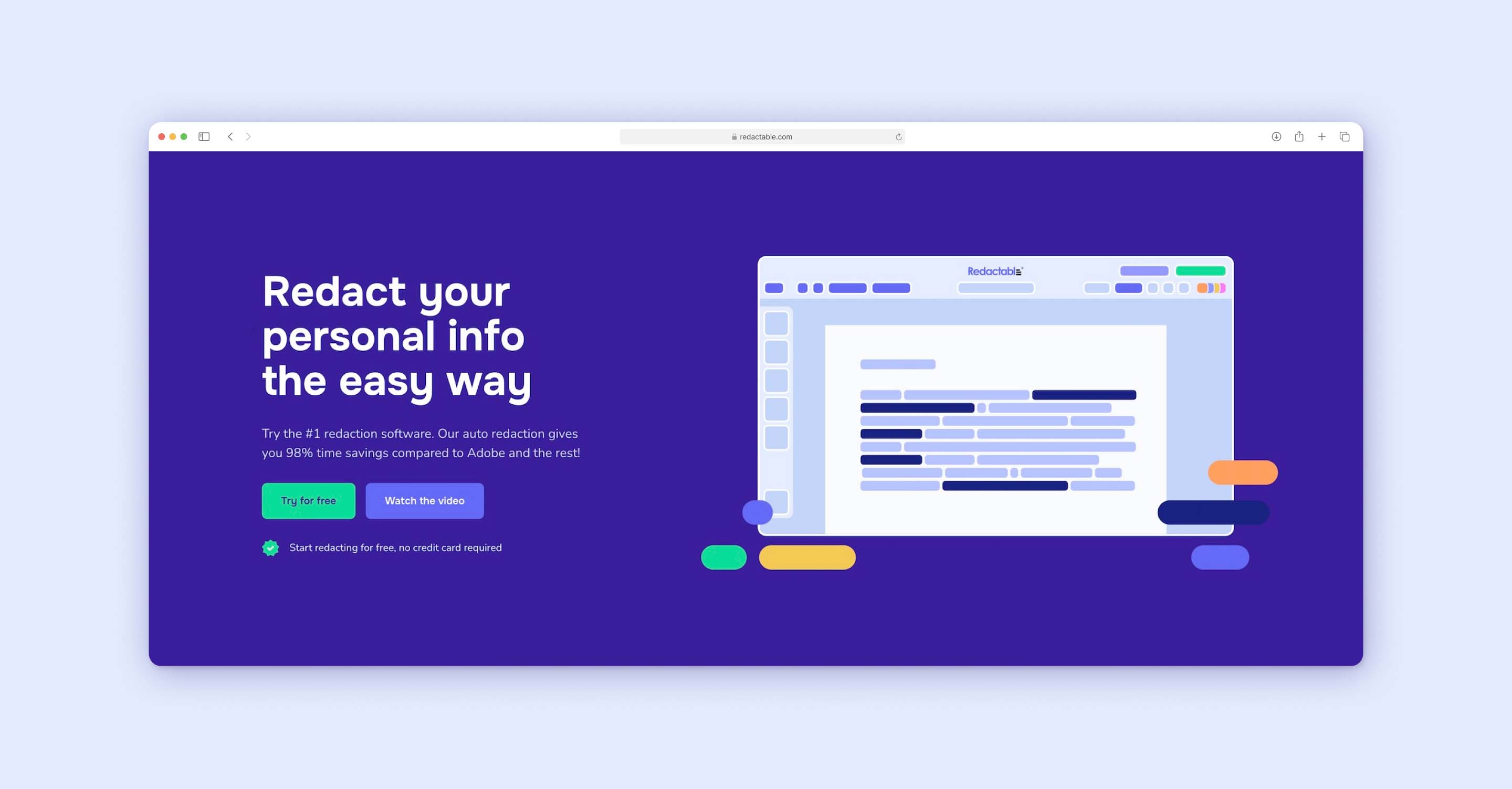
As we move further into the digital age, the importance of efficient and secure data redaction cannot be overstated. Tools like Redactable offer the advanced technology needed to protect sensitive information effectively, ensuring compliance with regulations, building trust, and safeguarding against potential breaches.
Takeaways:
- Prioritize data security: Implement comprehensive redaction practices at every stage of data handling.
- Leverage advanced technology: Use AI-powered tools for efficient, accurate, and scalable redaction solutions.
- Maintain compliance: Stay updated with relevant laws and regulations to ensure that all data protection measures meet required standards.
Ready to enhance your data security?
Experience the efficiency and security of Redactable for yourself. Try Redactable for free today and join the ranks of organizations that trust us for their data protection needs


